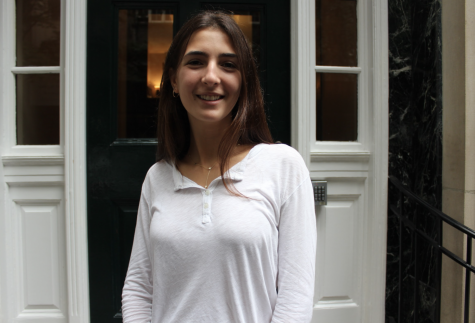#MeJew–Is it Time for Women to Speak up in Minyan?

Clocking in overtime hours at shul over the holidays is as characteristic of the month of Tishrei as dipping apples in honey, breaking fasts on bagels, eating pomegranate everything, guarding the pitom on your etrog like your life depends on it, and getting poked by a lulav. From selichot (which begin for Ashkenazim on the Saturday night before Rosh Hashana) to Yom Kippur, there are not only more services on the calendar than at any other time of year– they start earlier and end later, running an average of five hours long in most Orthodox communities.
In all of these hours sitting in services, I have a chance to spend extra time on my tefilot and to reflect on the year that passed and the one ahead. I watch from the other side of the mechitza as men in the community are called up to the bima to daven, read from the Torah, make and receive personal blessings, partake in the surrounding honors of handling and carrying the Torah, open the Aron, bless the community, wash the hands of those blessing the community and so much more. I could not help but wonder how much longer this one-sided system can sustain itself.
Much like men, I’d imagine that not all women would be comfortable to get up in front of the community and lead the davening or take on the responsibility of reading from the Torah. Even though singing in front of everyone isn’t really up my alley, I wouldn’t mind having the chance to recite a blessing over the torah, be up close and personal with the scrolls of our legacy, or to say my tefilot at Kol Nidreh standing directly in front of the Holy Ark. However, fractioning off to a women’s only tefillah group was never quite my thing either; to me, attending shul means coming together in prayer with my family and friends, rather than splitting apart.
On Rosh Hashana, I davened at Kehilat Jeshurun’s adjunct minyan held in the Kaufman auditorium of the Ramaz Upper School. Although I pray in that same room every school day, this time the atmosphere felt different. An extremely moving movement occurred when Chazan Jay Zwiebel, who flies in from Israel to lead the services at our minyan over the High Holidays, invited his two daughters to the front of the room to harmonize together to a breathtaking and heavenly singing of the Eitz Chayim prior to returning the torah to the Aron HaKodesh. While they stood at the front of the Women’s section and not alongside him in front of the Aron, at that moment they were leading the tefillah. A room of over 500 men and women was struck silent by their enchanting voices.
This reminded me somewhat of every Monday and Thursday at Ramaz, in that very room, where the Torah is carried through the women’s section after it is taken out to the Aron HaKodesh for Torah reading. Last year, in the sophomore minyan, a group of students (myself included) argued for the right to bring the Torah to the women’s side when it is taken out. After much debate, our request was granted. We continued this new tradition to this year’s joint Junior-Senior minyan. Every time the Torah is taken out of the Aron HaKodesh, it feels like a small victory and a step towards a more inclusive minyan.
I think about times where I have seen women included and how right and appropriate it felt, in contrast to women sitting on the sidelines and watching. At some synagogues, women have leadership roles and make the weekly announcements; at my summer community, another member and I were invited to play guitar and sing at a pre-selichot Kumsitz alongside two of our Rabbis. The chance to play some Carlebach and be a part of the evening inspired me to want to attend to future gatherings.
How much longer will women sit on the sidelines in the service in our modern-day society, where women’s rights and equality are being advocated for on sorts of platforms? What is the next step for our school and modern orthodoxy regarding a partnership minyan? In what ways will we adjust to the advancing world around us in the year ahead of us? Can we open the gates to a completely equal service?
Last year, women carried the torah on their side before torah reading. This year, two women were able to lead the congregation in song for a few very powerful moments. What is in store for us in the future?

Sophia Kremer started writing for the Rampage as a freshman covering orientation and now serves as Co-Editor-in-Chief. Sophia plans to promote the paper...



